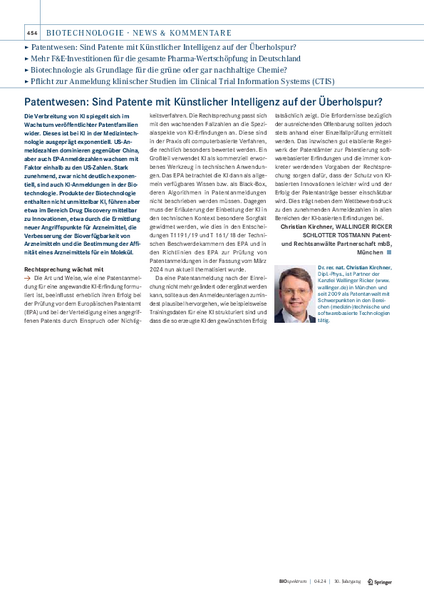In this article (in German) Dr Kirchner illustrates the differences in application numbers between the US and China and additionally talks about the influence of how an AI patent is drafted on its success during its examination by the European Patent Office (EPO) and in the defense of a contested patent by opposition or nullity proceedings.
BIOSpektrum is the publication medium of the (German) Society for Biochemistry and Molecular Biology (Gesellschaft für Biochemie und Molekularbiologie, GBM), the Association for General and Applied Microbiology (Vereinigung für Allgemeine und Angewandte Mikrobiologie, VAAM), the Genetics Society (Gesellschaft für Genetik, GfG) and the German Society for Experimental and Clinical Pharmacology and Toxicology (Deutsche Gesellschaft für Experimentelle und Klinische Pharmakologie und Toxikologie, DGPT). Every two months, the magazine gives around 15,000 readers an overview of new developments in the life sciences (with a focus on molecular biology, biochemistry, microbiology, genetics and developmental biology) and provides information on current affairs from business and politics (according to scientific publishing house Springer).



